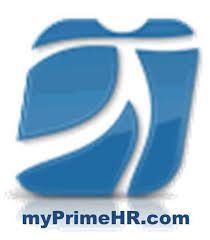
HR 2023: How to Enhance the Employee Talents while Considering their Well-Being
By: Tracy Chan | January 10, 20232022 has been a roller-coaster year for us, with the pandemic crisis, the reopening of borders, the return of international travel, and the unpredictable macroeconomic outlook - all forcing the Human resource professionals to be more forward-thinking, flexible, and adaptive to handle the rapidly evolving corporate world.
Peter Hatt, Head of Human Resources in Asia at Standard Chartered Bank (Hong Kong) Limited, emphasizes the value of fostering workplaces that enable employees to perform at their highest levels while boosting investment support for their mental health. He believes these are the two major trends HR pros need to watch out for in 2023.
Enhancing Human Potential
It is all about skills and how the nature of work will probably evolve shortly.
There is much discussion about the future of work, and it is clear that there is competition for skills on a global scale. As the local talent pool shrinks due to emigration and an aging population, employers are placing a high priority on reskilling and upskilling to enable talent management and long-term planning.
As a result, during the next 12 to 18 months, HR will play a crucial role, and HR directors will need to find new, creative solutions to this problem. Organizations are beginning to recognize the transferrable abilities that are needed for different professions, as well as the skills that will be in demand in the future.
More opportunities are starting to emerge for employees to upskill (learn new skills to transition into a new career), reskill (learn new skills to improve current skills), and even cross-skill (learn new skills to migrate into a different role). It significantly aids employee retention, helps the organization flourish, and yields favorable consequences for the business.
Individuals must be able to work at their best. Therefore, we have to foster that environment. For this reason, a lot of organizations work to make training for them as seamless as possible.
We also need to change the way people learn, moving away from the traditional classroom environment and moving towards a human-touched digital experience. In this hybrid workplace environment, we must keep enticing learners with immersive experiences.
And this is not at all easy. How to build learning programs that keep learners' attention is a crucial question that organizations will keep asking.
Although it may be convenient to get training online, there is an ongoing competition for the learner's attention from other activities. To maximize a learner's desire to learn, we must continue to pique their curiosity.
There are various ways to accomplish this. Effective learning results can be enhanced by gamification, short, bite-sized courses, and interaction. We will observe a significant increase in the emphasis placed on providing concise, focused lessons that are centered on one learning outcome that can be useful to a learner, avoiding roving attention and unnecessary material. Learners can retain material more successfully by reducing the duration and complexity of individual training sessions.
Wellness
The investment in psychological health is a significant trend that will continue to grow and change.
A crucial trend that will develop this year is mindfulness, a meditation technique that is quite exciting. In a nutshell, mindfulness is the practice of being conscious of choices we make for our well-being and every minute of existence, such as our nutrition and how it affects the environment. Based on attentive awareness, employees will re-evaluate every action and behavior they will do.
People who practice mindfulness may become more aware of the demands and difficulties faced by their organizations. Additionally, it can aid in the development of leadership skills and a reduction in sensitivity to change. Peter firmly believes that it will promote workplace wellness by aiding the long-term development of flexibility, empathy, and resilience.
Workplace stress increased over time throughout the pandemic, and as new hybrid workplace environments have emerged, we are seeing individuals who are unable to clearly distinguish between their personal and professional life. Due to rigid work hours, a heavy workload, job uncertainty, and the inability to express concerns freely, many employees find it difficult to allocate time to their psychological and general welfare.
Mr. Peter Hatt personally believes that we should make an effort to set an example for the behaviors that we would like to see in the team because it is crucial to set an example to your coworkers while creating a stress-free environment where they can work while still producing results.
Read more...
Events
aclt on its 24th Year! Nationwide simulataneous celebration starts on August 8, 2020.
Useful Links
Our Contacts
1002 Rufino Building
6784 Ayala Avenue, Makati
Makati: (+632) 844 9722
